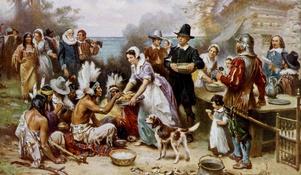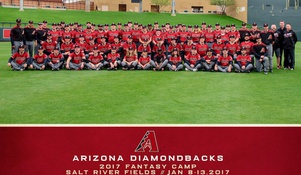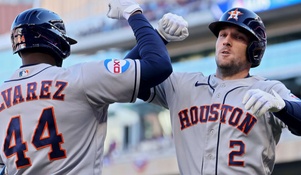Greatness or Value: The Mike Trout MVP Story
Growing up a Cubs fan, I always had a chip on my shoulder about any successes the Cubs had, because until this year, I haven’t seen much of it and when I did, there was always someone to tell me something wrong about it. The biggest individual accomplishment during my lifetime that always got crap was Andre’ Dawson’s MVP season of 1987. The “Last Place” MVP.
I would always argue, “Yay, MVP!”
Then someone would say “...but on a last place team.”
To which I would reply, “Yeah, so! Yeah! So!” and storm off.
It’s true, Andre’ Dawson played on a last place team. The Cubs were 76-85 that year. Good enough to finish 18.5 games behind the first place St. Louis Cardinals in the East Division. Dawson had a monster year, belting 49 home runs. If the Cubs played in the West Division, they would have finished 3rd instead of 6th, but nobody cares. Four other times a player on a losing team has won MVP (ARod, Cal Ripken Jr, and Ernie Banks, twice.)
This week, Mike Trout was named the 2016 AL MVP and his team the Los Angeles Angels finished with a record of 74-88. Good enough to finish 21 games out of first place, which belonged to the Texas Rangers. How does this happen? How does the MVP of the entire league come from a team that couldn’t even make it to the playoffs, let alone win more games than it loses? Let’s breakdown the numbers. Just kidding, we don’t do that around here. We save that for smarter and mathier people, like Sam Miller at ESPN.
My question revolves around value and greatness. MVP is an initialism that stands for Most Valuable Player. Obviously, you can’t be the most valuable player in the league on a team that can’t win, so many consider the MVP to be more of a “Best Player” award. How much control can one player have on the overall record of a team anyway? How much impact can one person have? Can you be great and holding your team back?
If you have the answer to these questions, please let me know. I have no idea because I’ve never been “The Best” at anything. I’ve ranged from “Pretty Bad” to “Pretty Good”. I have lived most of my life in the middle. Either by design or by nature, I have avoided winning anything or leading a group of individuals to the highest success. I’ve come close a few times, but have never achieved greatness. So, how am I supposed to relate Mike Trout’s MVP season to my life? Well, I feel the need to break it down even further.
You see, I have many good things about me. I have many bad things about me. If I considered my whole self as a team and the different parts of my personality or talents as individuals on that team, I think I can better understand the Mike Trout MVP season. In plenty of examples, there was part of me that excelled, but because other parts of me did poorly, I wasn’t able to come out a winner.
For example, when I played baseball in Junior High and High school, I was really good at first base. I could field the ball really well. My favorite thing to do was make those plays where the throw was low and I had to dig the ball out of the dirt to get the runner out. I loved it. However, my hitting was sub-par. I was a below average hitter. I lacked confidence at the plate, so I was inconsistent and had little power despite my size. Because of this, I was not a top prospect. I was even moved away from first base on occasion to give players that could hit better the chance to play more. As a player, I lost, even though my ability to play defense was very good.
Another example in my personal life is my role as father. I am very good at a few things, like playing and being silly with my kids. There are other areas where I am not so great. So, there are days when I definitely fail at “fathering” because my great traits couldn’t do enough to get me out of trouble or they were just not needed as much on a particular day when maybe I needed to be more consistent and understanding (two areas I am working on).
On the flip side, you have to wonder where the Angels would have been WITHOUT Trout in the lineup. Would they have been even worse? Possibly. When I look at the personal examples, I doubt I would have even been on the field at all if it weren’t for my defense. Would my kids even want me in their lives if it weren’t for the parts of me that were pretty good? I would guess not.
In the question of awards, who knows? Its a great debate and i can see both sides. However, what cannot be debated is that if the Angels want to win more games, they need to improve their weaknesses as a team. They can’t expect Mike Trout to give even more than he already does. They must analyze those areas that could use improvement and implement a plan to replace the current players or coach up the ones they have. The same holds true for me. I must constantly be analyzing my own weaknesses so I can improve those. The old saying “A chain is only as strong as its weakest link” is true. As I search out those weak links in myself, make a plan of improvement and then execute it, I greatly increase my chances of “winning” at life.
Embrace your own personal MVP traits and keep getting better each day. Well, that’s what I tell myself anyway.






